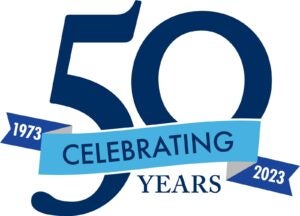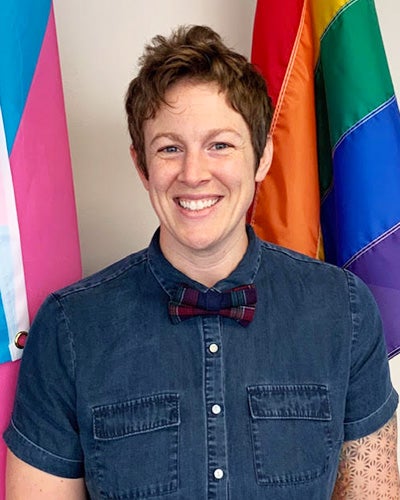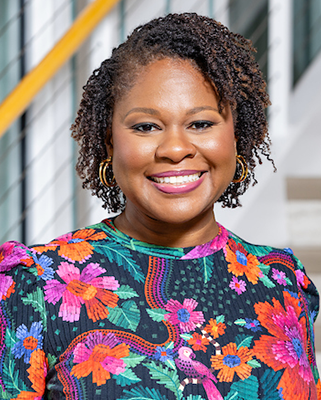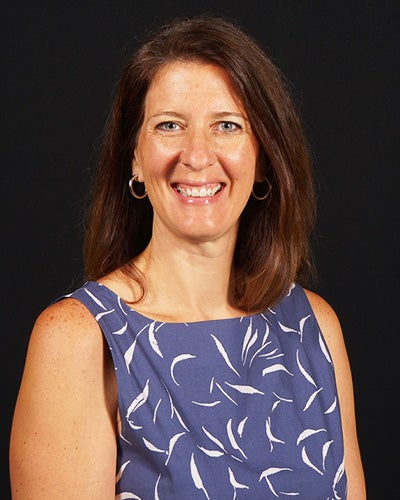A Learning Celebration

(October 13, 2023) — In addition to the dinner celebration of the 50th anniversary of midwifery education at Georgetown University, an afternoon symposium allowed attendees in-person and online to participate in three health equity-focused podium presentations. It capped a series of educational events tied to the nurse-midwifery program anniversary.
After acknowledging Indigenous Peoples Day, Melicia Escobar, DNP, CNM, WHNP-BC, FACNM, program director for the NM/WHNP and WHNP programs, greeted symposium participants. “I am beyond thrilled to have you all here today to engage in health equity work — work that also asks us to consider how we can be the best stewards of the space we create for our patients, for our students, for each other, for ourselves,” she said.

Katie DePalma
Katie DePalma, DNP, CNM, WHNP-BC, FACNM, (G’ 14) explored the sources of systemic and implicit bias that adversely impacted the poor outcomes of two fictional case studies with people who had complex pregnancy and gynecologic conditions (“Complex Case Studies: Reframing Clinical Care Through a Health Equity Lens”).

Noelene K. Jeffers
Noelene K. Jeffers, PhD, CNM, IBCLC, assistant professor at Johns Hopkins School of Nursing, shared study findings related to the lived experiences of racism of students, faculty and preceptors, and the strategies used to resist racism. She also shared a vision for transforming midwifery education to help guide efforts to cultivate safe, nurturing, and equitable spaces that help Black, Indigenous, and other midwifery students of color thrive (“Racism, Resistance, and Re-envisioning: Perspectives of Midwifery Students, Faculty, and Preceptors”).

Heather Bradford
Heather Bradford, PhD, CNM, FACNM, and Signey Olson, DNP, CNM, WHNP-BC, FACNM, both School of Nursing faculty, explored the prevalence of weight bias (defined as the societal devaluation of people in larger bodies) and its deleterious effects on the utilization of care, the clinician-client relationship and health outcomes. They also shared strategies for understanding how critically reflecting on a clinician’s biases and on research can improve client outcomes and enhance shared decision-making (“Weight Bias in Healthcare: We Can Do Better”).
Last month, the school offered a two-part webinar series (with CEs) that situated the nurse-midwifery program in time and historical context, as past and present program directors shared their challenges and contributions to midwifery education, practice, and science during their tenure at Georgetown.
In part one, program directors from 1973 to the 2011 online transition, noted the similarities to today’s struggles for midwifery’s place in health care and academia. Part two featured program directors from the 2011 online transition to the present and explored the expansion of Georgetown’s reach as the hybrid distance education model was established.
